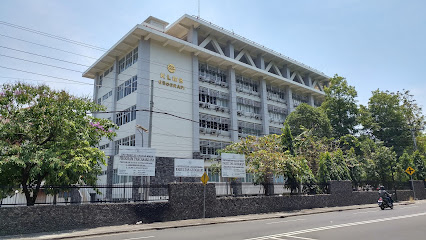
The Faculty of Geography at Universitas Gadjah Mada (UGM) has secured the top position in Indonesia and ranked 137th in Asia in the EduRank 2024 rankings. According to EduRank.org, this ranking is based on an evaluation of 452,000 citations received from 222,000 academic papers produced by 75 universities in Indonesia. The assessment also includes additional indicators related to non-academic excellence and alumni popularity as part of the evaluation criteria.
A Collective Achievement
The Dean of the Faculty of Geography UGM, Dr. Danang Sri Hadmoko, S.Si., M.Sc., expressed his gratitude for this achievement in an interview on Thursday (January 16). He emphasized that this ranking serves as proof of the continuous improvements and advancements made by the faculty across various aspects.
“We are very grateful to have an institution that serves as a national reference. This achievement is the result of collective efforts from all colleagues—lecturers, academic staff, students, alumni, and our partners who have collaborated with us,” he stated.
Dr. Danang also emphasized that while rankings are important, they are not the primary goal. Instead, the focus is on ensuring that the faculty’s tri dharma (education, research, and community service) activities provide real benefits to the wider society, including the government, industry, and both national and international partners.
Strengthening Research and Academic Excellence
To enhance research quality and publication impact, the Faculty of Geography UGM continues to encourage its lecturers to engage in collaborative research.
“The most important thing is to build a strong research environment that not only helps improve our ranking but also promotes research topics that have a significant impact on society, particularly through collaboration,” he added.
The faculty’s research focus has been directed towards themes related to a sustainable planet, including:
✅ Climate change and global warming
✅ Disaster management
✅ Land degradation
✅ Natural resource and environmental management
✅ Demographic trends, including aging population and migration
✅ Smart and sustainable cities
✅ Regional development
✅ The application of AI in research
These research topics are also integrated into the curriculum, ensuring that the concepts taught in classrooms are validated through real-world research data collected by faculty members.
“This research significantly enriches teaching materials for lecturers, ensuring that the content remains valid and up-to-date by incorporating real-world use cases relevant to current global issues,” explained the Dean.
Future Commitments for Faculty Development
Looking ahead, the Faculty of Geography UGM is committed to continuously improving its quality through several key strategies:
1️⃣ Expanding International Research Networks – Strengthening research collaborations to build a stronger research foundation.
“We aim to improve the quality of research and publications, moving beyond quantity to prioritizing quality, ensuring that our research has a greater impact,” Dr. Danang explained.
2️⃣ Adapting the Curriculum – Ensuring that the curriculum remains adaptive and relevant to societal needs.
3️⃣ Strengthening Alumni Engagement – Recognizing alumni as an essential component of a higher education institution and increasing their involvement in faculty development.
Open to Collaboration and Public Engagement
As a closing statement, Dr. Danang reaffirmed the faculty’s commitment to engaging with external partners to address major societal challenges.
“We welcome input from the public and aspire for this faculty to play a greater role in solving critical global issues within our areas of expertise. We aim to broaden our engagement with partners outside the institution,” he concluded.
With this achievement, the Faculty of Geography UGM continues to solidify its position as Indonesia’s leading institution in geography education and research, contributing to national and international advancements in environmental and spatial sciences.
